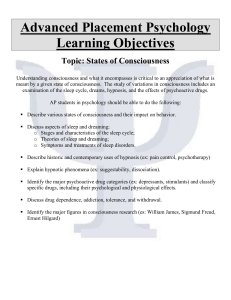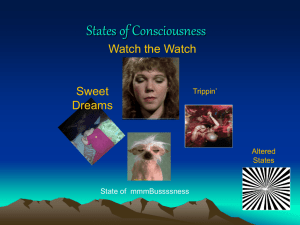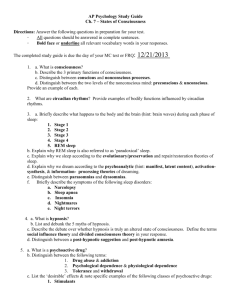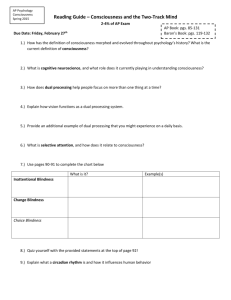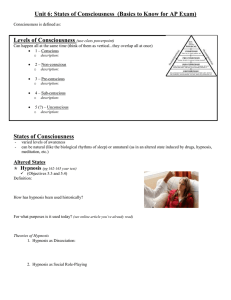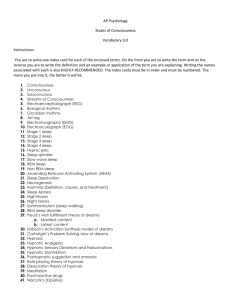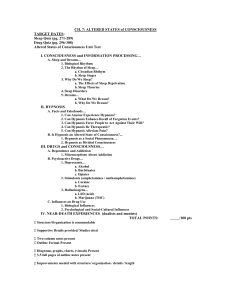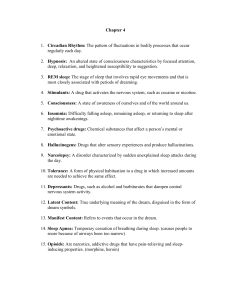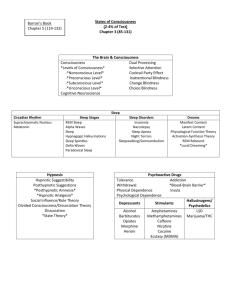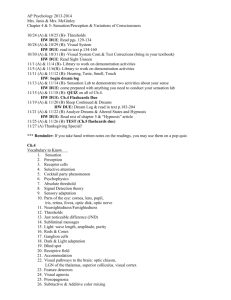Chapter 9, Modules 20
advertisement
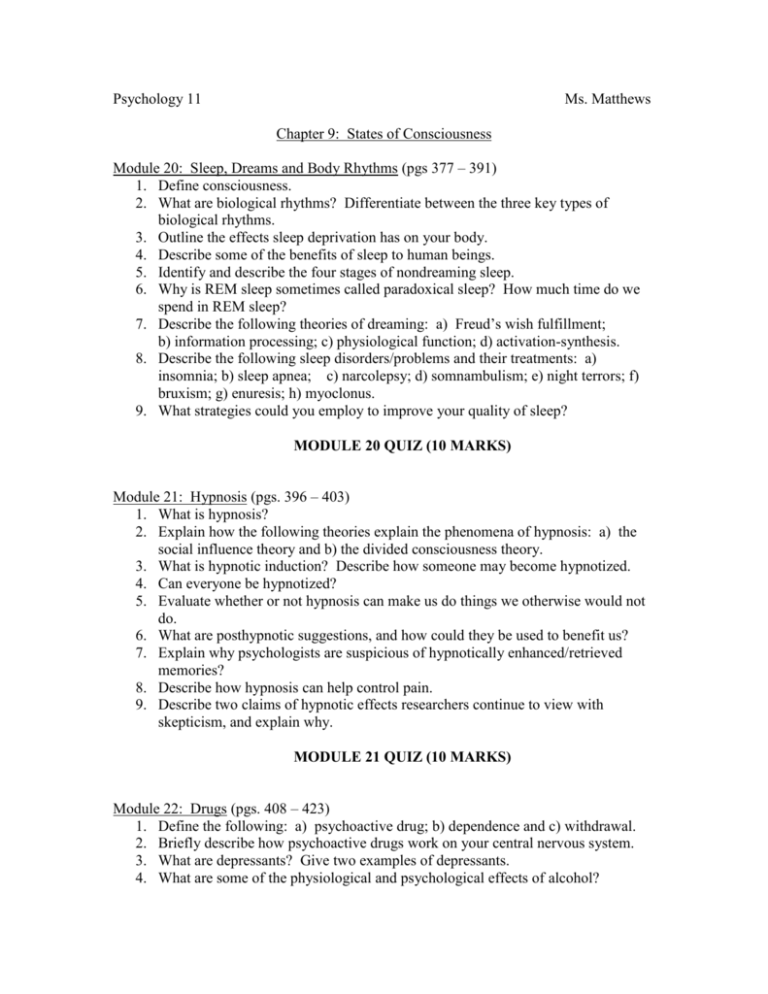
Psychology 11 Ms. Matthews Chapter 9: States of Consciousness Module 20: Sleep, Dreams and Body Rhythms (pgs 377 – 391) 1. Define consciousness. 2. What are biological rhythms? Differentiate between the three key types of biological rhythms. 3. Outline the effects sleep deprivation has on your body. 4. Describe some of the benefits of sleep to human beings. 5. Identify and describe the four stages of nondreaming sleep. 6. Why is REM sleep sometimes called paradoxical sleep? How much time do we spend in REM sleep? 7. Describe the following theories of dreaming: a) Freud’s wish fulfillment; b) information processing; c) physiological function; d) activation-synthesis. 8. Describe the following sleep disorders/problems and their treatments: a) insomnia; b) sleep apnea; c) narcolepsy; d) somnambulism; e) night terrors; f) bruxism; g) enuresis; h) myoclonus. 9. What strategies could you employ to improve your quality of sleep? MODULE 20 QUIZ (10 MARKS) Module 21: Hypnosis (pgs. 396 – 403) 1. What is hypnosis? 2. Explain how the following theories explain the phenomena of hypnosis: a) the social influence theory and b) the divided consciousness theory. 3. What is hypnotic induction? Describe how someone may become hypnotized. 4. Can everyone be hypnotized? 5. Evaluate whether or not hypnosis can make us do things we otherwise would not do. 6. What are posthypnotic suggestions, and how could they be used to benefit us? 7. Explain why psychologists are suspicious of hypnotically enhanced/retrieved memories? 8. Describe how hypnosis can help control pain. 9. Describe two claims of hypnotic effects researchers continue to view with skepticism, and explain why. MODULE 21 QUIZ (10 MARKS) Module 22: Drugs (pgs. 408 – 423) 1. Define the following: a) psychoactive drug; b) dependence and c) withdrawal. 2. Briefly describe how psychoactive drugs work on your central nervous system. 3. What are depressants? Give two examples of depressants. 4. What are some of the physiological and psychological effects of alcohol? 5. Alcohol effects men and women differently. Explain. 6. What are opiates? Using examples, explain why they are so addictive. 7. Explain what stimulants are and how they effect us. Give some examples of stimulants, identifying those that are considered to be the most dangerous and why. 8. Define hallucinogens, give some examples, and outline the dangers they pose to those who use them. 9. Differentiate between the similarities and differences between marijuana and other drugs. 10. What physiological ‘cost’ does marijuana have to us? 11. Outline some strategies to prevent the use of psychoactive drugs. MODULE 22 QUIZ (10 MARKS) Chapter 9 Test (Date:_____________________)

